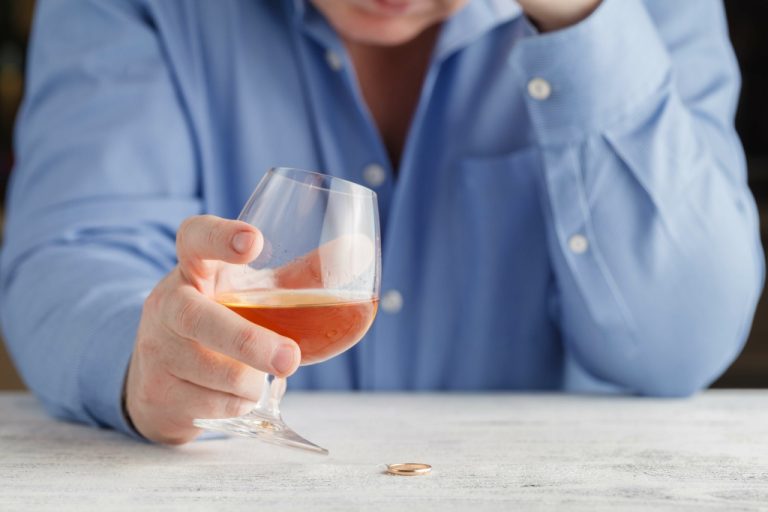Persistent Rhinitis Sneezing: Cause and Treatment
Sulfites naturally found in wine and beer can cause asthma symptoms in people who are sensitive to sulfites. In rare cases, a reaction can be severe and lead to anaphylaxis. While most people can tolerate sulfites in foods, there are some who are especially sensitive to them and may experience an asthma attack. In rare instances, exposure to sulfites has been known to cause a potentially life-threatening, whole-body allergy known as anaphylaxis. Alcohol-induced respiratory symptoms are common in patients with aspirin exacerbated respiratory disease. If you find that certain drinks trigger your sneezing, try switching to a different type of alcohol.
Photic sneezing is when someone sneezes when looking at a bright light. If you have an extreme sulfite sensitivity or are at risk of anaphylaxis, you will need to carry an EpiPen to self-inject yourself with epinephrine (adrenaline) in the event of an emergency. If you are experiencing serious medical symptoms, please see the
National Library of Medicine’s list
of signs you need emergency medical attention or call 911.
Antihistamine nasal sprays
In my case, I get an allergic reaction after drinking beer/wine, which causes an extreme stuffy/runny nose. I have been trying an anti-histamine (loratadine) to counter it, but it does not seem to do much.I do not get Asian flush after drinking. Rarely, a short course of steroid tablets is prescribed. For example, for students sitting exams, who have severe symptoms which are not eased by other treatments. However, you should not take steroid tablets for long periods to treat rhinitis, as serious side-effects may develop. See the separate leaflet called Oral Steroids for more details.

People with grape allergies need to avoid wine and distilled spirits made with grapes, including cognac, ouzo, and vermouth. The type of yeast used to ferment many alcoholic beverages and to make dough rise is known as brewer’s yeast or baker’s yeast. A reaction to high-histamine foods could be a sign of histamine intolerance. Your body has two enzymes that are supposed to break down histamine, but sometimes they don’t work as well as they should.
How we reviewed this article:
Sulfites, tyramines, and histamines are substances that are naturally found in many forms of alcohol. They’re present in higher amounts in certain types of alcohol, 50 Sobriety Gifts Ideas, Effective Substance Abuse Treatment like red wine, than others. Alcohol intolerance happens when your body reacts in an unpleasant way to alcohol, but the process doesn’t involve your immune system.
While some foods are broken down in the intestines, others are digested in the stomach. Alcohol does not need to pass through the digestive tract in order to be digested; rather, it is absorbed directly into the blood stream. However, if a sneezing fit goes on for a long time or keeps coming back despite conventional treatments, a person may wish to consider contacting a doctor. By increasing the amount of vitamin C in their diet, a person may potentially see a reduction in sneezing over time due to the vitamin’s immune-boosting effects. Once the person has done this, they might be able to avoid the allergen and prevent sneezing as a result of exposure to it. Even so, if you have a severe corn allergy, you may want to avoid corn-based spirits, most especially bourbon.
How long is treatment needed for?
First, the body produces histamines in response to the presence of the alcohol that the body is unable to digest. This article looks at some of the possible causes of alcohol allergy or intolerance. It also offers tips on how to drink alcohol safely if you have an allergy or intolerance to any ingredient used to make wine, beer, or distilled spirits. If drinking alcohol—also known as ethanol—gives you food allergy symptoms such as flushing or hives, you may have an intolerance to alcohol. A food allergy is an abnormal immune reaction to things we eat, while a food intolerance is an adverse reaction to food that does not involve the immune system.
However, the best treatment is the avoidance of histamine in the foods we consume, including alcohol. Although red wine is especially high in histamines, all alcoholic beverages have high levels of histamine. If they don’t, you may experience a so-called “red wine headache” and other symptoms. These include itchy or flushed skin, red eyes, facial swelling, runny nose, and congestion. It’s pretty normal to feel ropey the day after drinking alcohol (especially as so many of the most popular hangover cures are actually myths, sorry). Booze can cause us to experience everything from headaches to nausea the morning after, and can also impact on mental health conditions, such as anxiety or depression, too.
Weird sneezing reaction to drinking
This will reduce the alcohol in the drink and make it less likely to trigger a sneeze. Mixed drinks containing any of the ingredients mentioned earlier are also likely to cause sneezing. If you’re allergic to any of the ingredients in a mixed https://g-markets.net/sober-living/art-therapy-create-to-recover/ drink, you may want to avoid it. This dilation occurs first in the brain, so you may feel flushed or warm after only a few sips of alcohol. The dilation then extends to blood vessels throughout your body, including those in your nose.
- Sometimes polyps can block the drainage of your sinuses and lead to sinusitis as described above.
- Sulfites naturally found in wine and beer can cause asthma symptoms in people who are sensitive to sulfites.
- Like wine, beer also contains histamines, which can trigger sneezing.
- An allergy is a common cause but there are also non-allergic causes.
They were found to develop bronchoconstriction after drinking apple juice containing alcohol. Intravenous infusion or inhalation of ethanol also caused bronchospasm responses in the male subject. These studies suggested that alcohol itself caused the asthmatic symptoms triggered by alcoholic beverages. Alcohol-induced respiratory reactions reflect the operation of different and often racially related mechanisms that differ from those of classical, allergen-induced asthma. The commonly used treatment options for allergic rhinitis are avoiding the cause of the allergy, antihistamine nasal sprays, antihistamine tablets and steroid nasal sprays.
It refers to a relatively common but poorly understood condition that causes people to sneeze uncontrollably after a large meal. However, for people with a condition called intractable sneezing, the matter is different. Ventilation and dust prevention can help reduce exposure. Reducing exposure to these irritants can help prevent complications. As a recent article explains, irritants are dangerous if people are in contact with them for too long.

Leave a Reply
Want to join the discussion?Feel free to contribute!